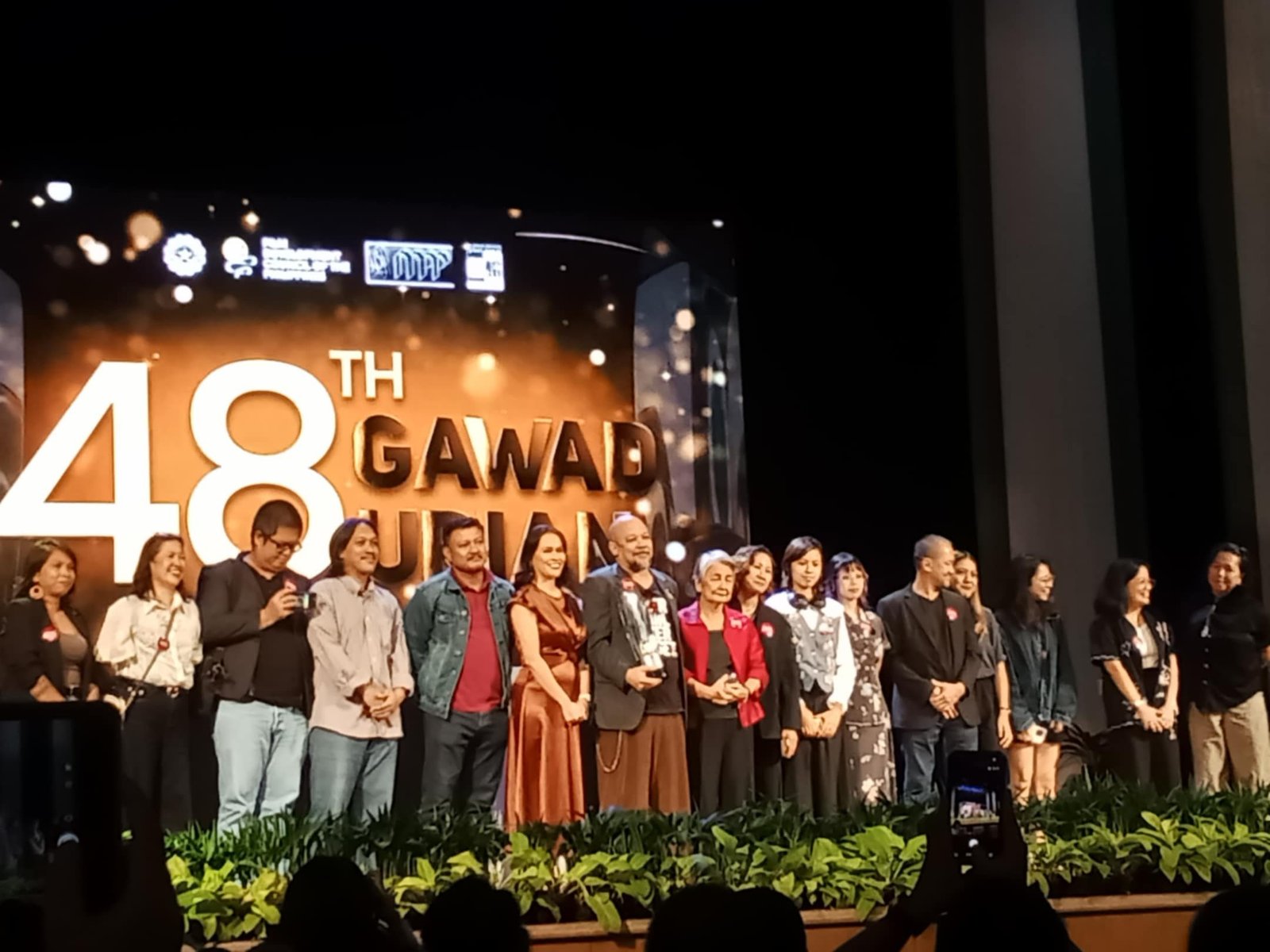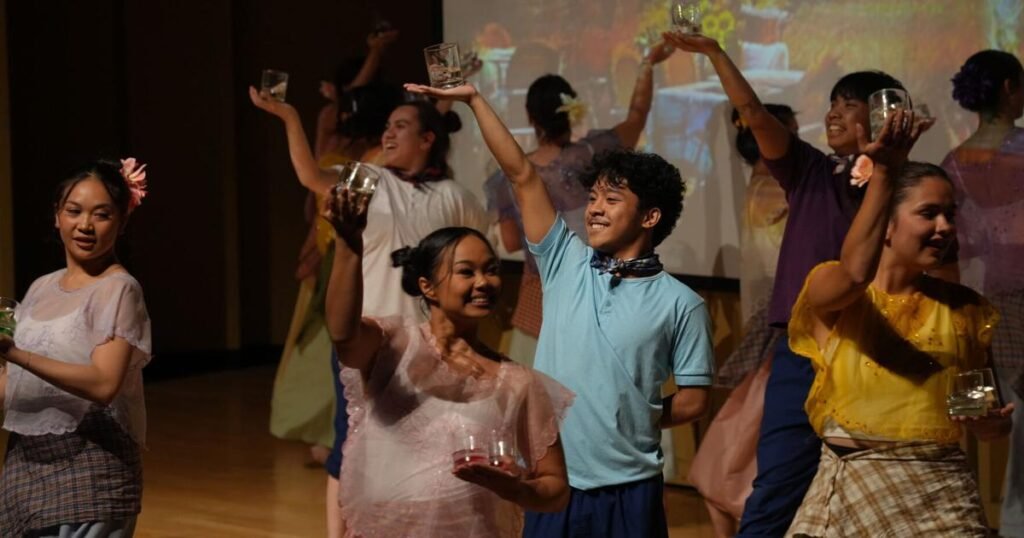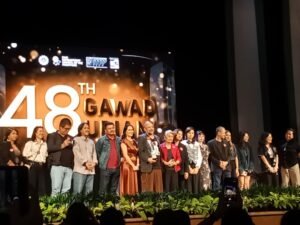Kane Hall is one of the ugliest buildings on the UW campus. At this point, I hope most people agree that the lecture halls are home to some of the most annoying classes and the outside is a brutalist monstrosity on one of the most beautiful campuses in the country. So, as if going there four times a week wasn’t enough already, when I learned that my next event piece for The Daily was in Kane, I was not happy — until the event began.
UW’s Filipino American Student Association (FASA) recently hosted their annual flagship event called Filipino Night, or FilNight, which is typically a night when FASA members perform a student-led production to celebrate the Filipino-American community. This year’s event marked thirty years since the first FilNight in 1995 and the energy was buzzing. As the seats of Kane 130 began to fill up with children, parents, grandparents, and even great-grandparents, I found myself feeling affection towards the beautifully transformed space I was in — FASA’s Kane Hall.
This year’s production for FilNight was called “Be the Light,” a musical about the life of Filipino revolutionary José Rizal, originally written and composed by Steven Santos — a former cultural chair for FASA who tragically passed away in January 2020, while finishing his senior year at UW.
Although the script was made into an animated version that was released during the pandemic, FASA decided to bring Santos’s script to life on stage to celebrate thirty years of FilNight, honor Santos’s memory, and bond with each other through the experience.
“For people that didn’t know each other at all, in 11 weeks, I was really shocked that we were all really close at the end,” FilNight Co-Director Isabella del Rosario said. “It was amazing to see how well we pulled everything off in a short amount of time.”
As people living away from their countries of origin who find it tough to connect to their roots, everyone in FASA is looking for a way to find their culture and, through FilNight, many were able to not only find culture but find a family, del Rosario said.
“I treat them like family; they will always be my family,” del Rosario said. “I just feel at home when I’m around them.”
FilNight Co-Director Ethan Palomo explained that this particular FilNight was incredibly special because, in addition to community and history, the team was motivated by the importance of celebrating their member Steven Santos’s legacy. It was a way to honor both FASA and Santos by giving life to a story that deserved to be fully realized.
“Having it be Steven’s script, it put this different type of drive in me,” Palomo said. “I knew I had to give this literally everything because it’s not my script. It’s something that we had to bring justice to. It’s something that we had to rise up to.”
After the actor portraying Rizal in the show was forced to drop out due to extenuating circumstances just weeks away from the day of the show, Palomo stepped in and took on the responsibilities of playing the role in what would be his first time acting on stage. Palomo’s motivations for performing this particular script kept him grounded and guided him through mounting anxiety, as he transformed into the incredible Filipino revolutionary on stage, he said.
“It felt like the rest of the crowd was a blur and I was just singing to Steven’s friends and family,” Palomo said. “Seeing them being moved by the show moved me, as well.”
Santos’ friends and family — many of them UW alums — sat in a reserved section towards the front and center of the auditorium to watch their loved one’s vision come to life on stage.
“I can see my brother’s fingerprints all over this script,” Saralyn Santos said. “There are really silly scene titles that I can tell he wrote. There are also hidden X-Men references somewhere in the script. A lot of what my brother thought about was this question of how to be a light in a world that is so often so dark and oppressive.”
Oftentimes, history can be dark, oppressive, and difficult to think about and the life of Rizal is no different. Rizal, a prominent thinker and impactful writer who many consider a catalyst for change in the Philippines, was executed at the age of 35 by the Spanish colonial government for inciting a rebellion after the Philippine Revolution began. Although this part of history can be difficult to think about, it is incredibly important for many people from the Philippines, and remembering Rizal’s legacy helps them feel closer to their heritage, Aaron Ilagan, a cast member said.
“When I told my mom this show was about José Rizal, her eyes lit up,” Ilagan said. “It’s a dormant part of our history that we haven’t talked much about before. It was like a bridge for us to get closer and engage in our past—in her past.”
The event was for everyone as described by Palomo, not just Filipinos.
“It is a story about a specific revolution but there is a universal language in it,” Palomo said. “Using something to enact change, to enact movement, on a group of people that’s hurting. Being the light when the people are crying and being together in those moments — creating change. I think that’s what Steven wanted to get at.
Reach writer Paarth Gupta at news@dailyuw.com. X: @pg_litty. BlueSky: @pglitty.bsky.social
Like what you’re reading? Support high-quality student journalism by donating here.











